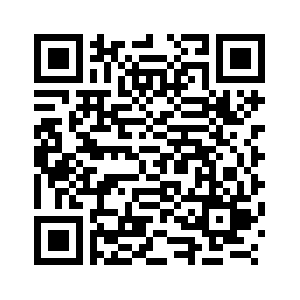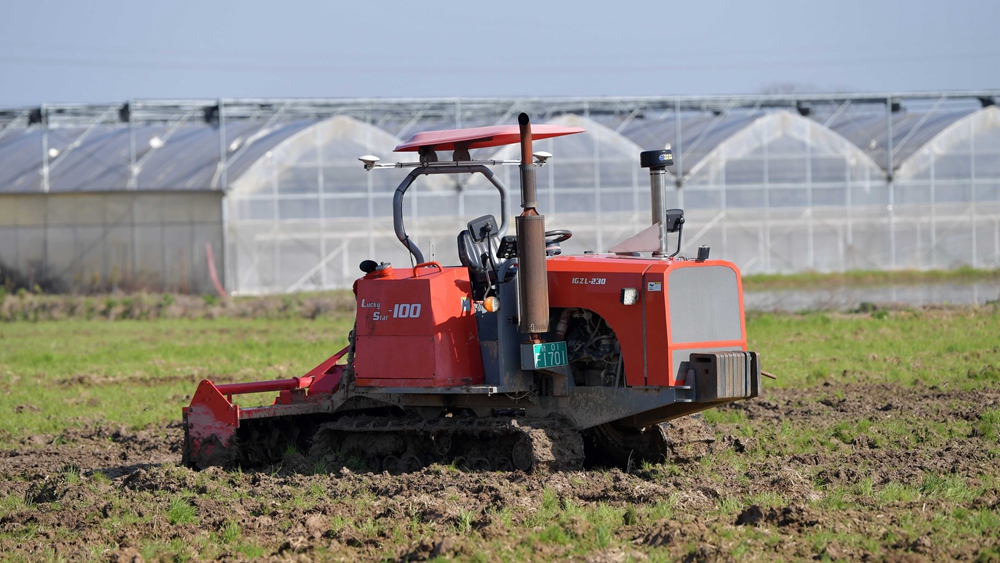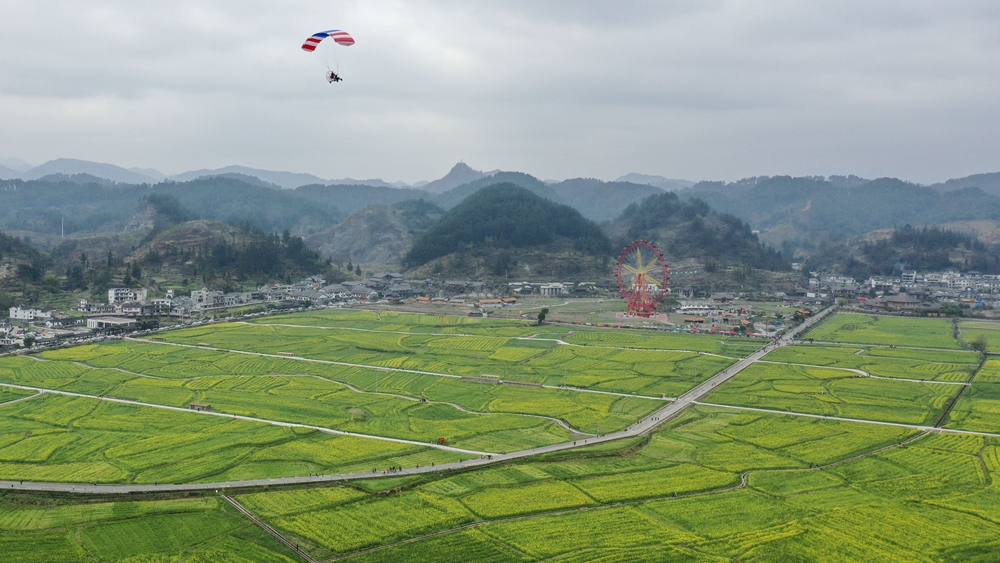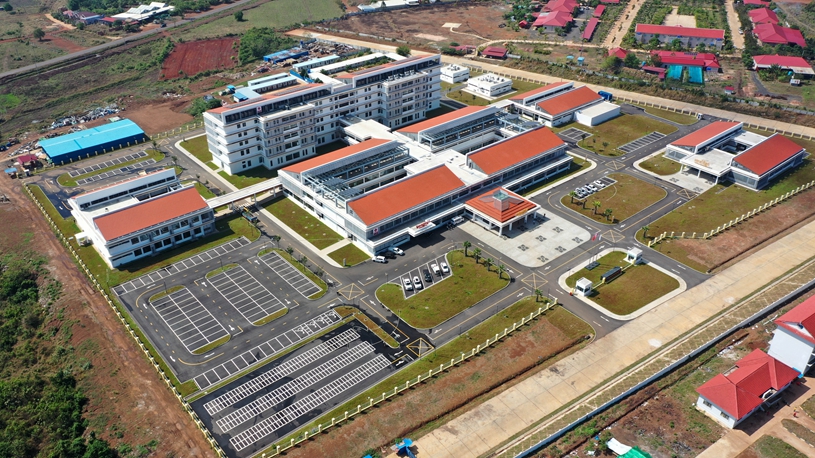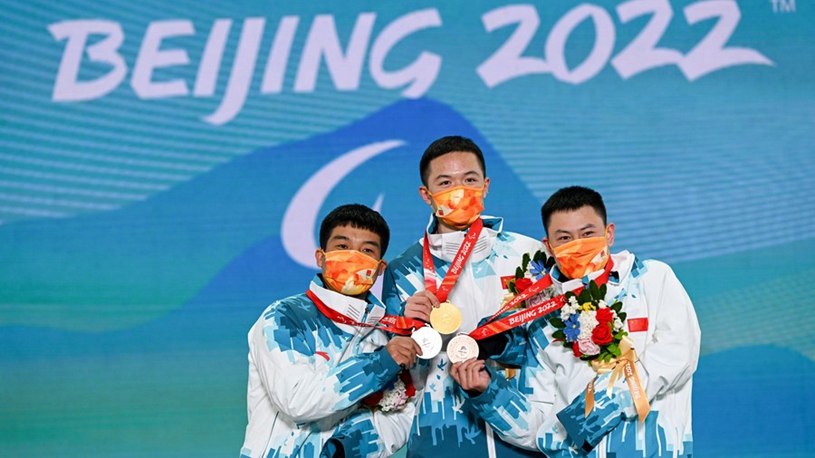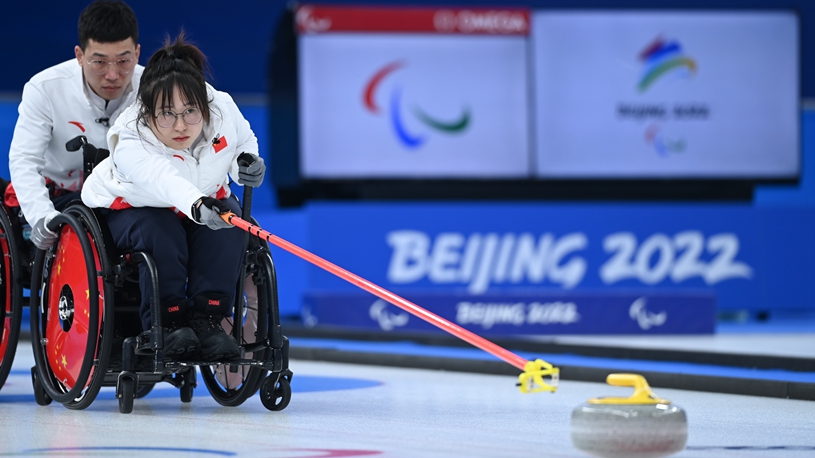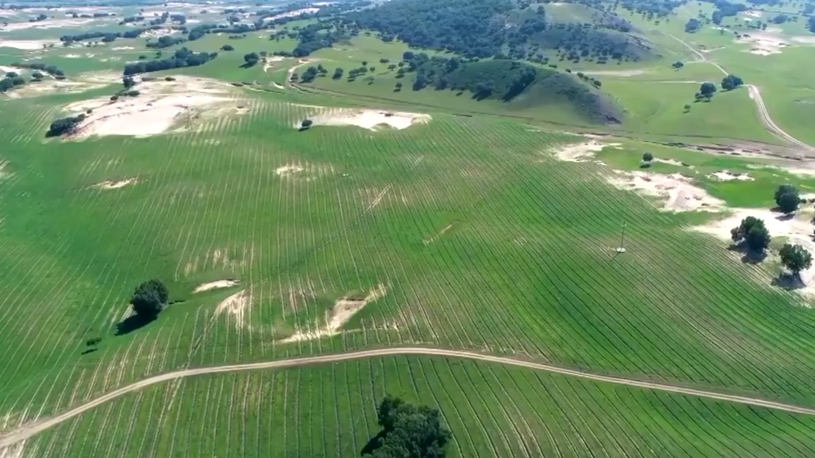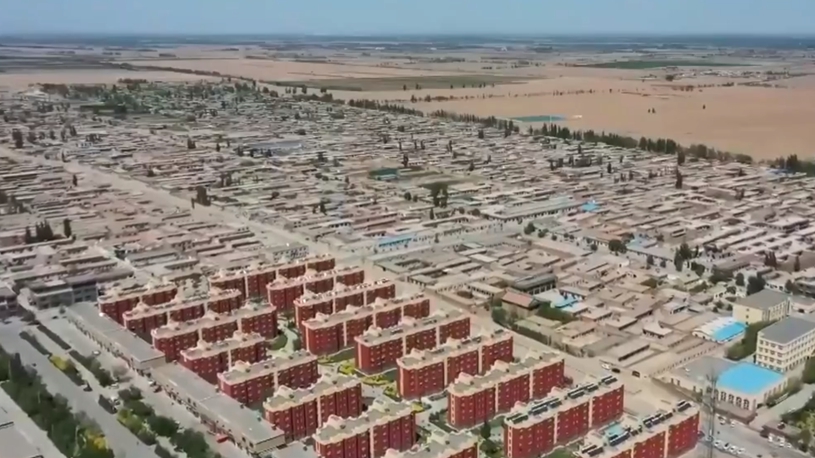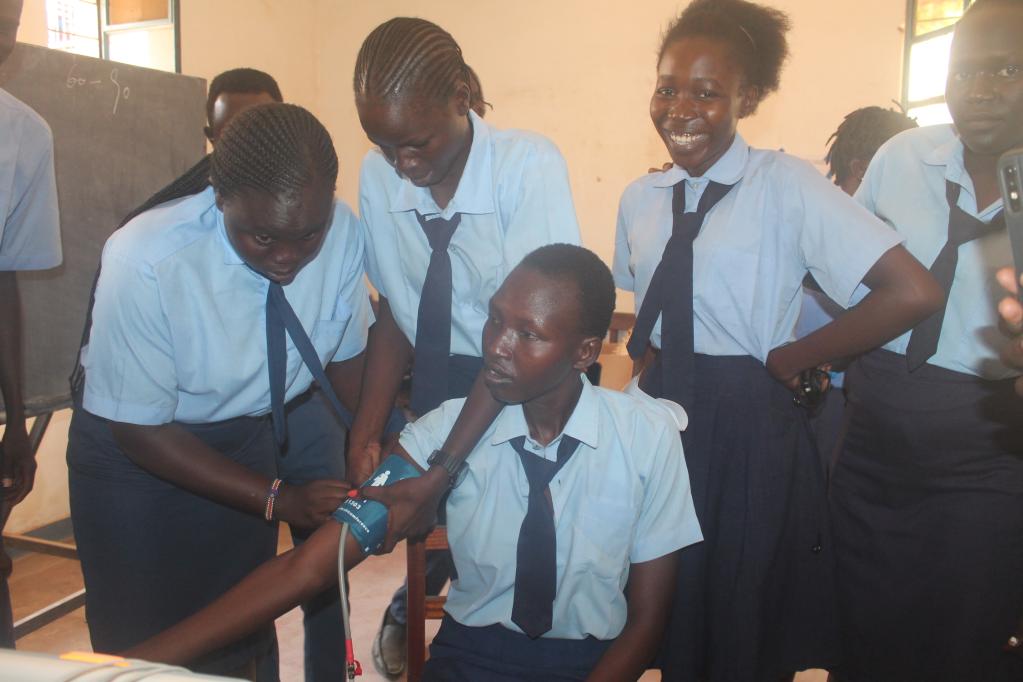
Photo taken on March 9, 2022 shows South Sudanese students of Juba Institute of Health Sciences trying their hand at airway management in Juba, the South Sudanese capital. (Xinhua/Denis Elamu)
They (Chinese) are very interested to come and help the institution in teaching and support in other things that we are lacking, says Steven Friday Barayona, the acting principal of Juba Institute of Health Sciences, while commenting on the role of Chinese medics in South Sudan.
JUBA, March 10 (Xinhua) -- Several South Sudanese students studying to be operating theatre technicians have acknowledged learning vital lessons on various types of anesthesia from their lecturer Gao Pengfei, a member of the ninth batch of the Chinese medical team.
Solomon George, a 24-year-old student, on Wednesday paid attention as Gao delivered a lesson on anesthesia using Powerpoint at Juba Institute of Health Sciences in Juba, the South Sudanese capital.
Gao, with the support of his projector, was able to walk his students through the types of anesthesia such as regional, local, and general anesthesia which they had never come across.
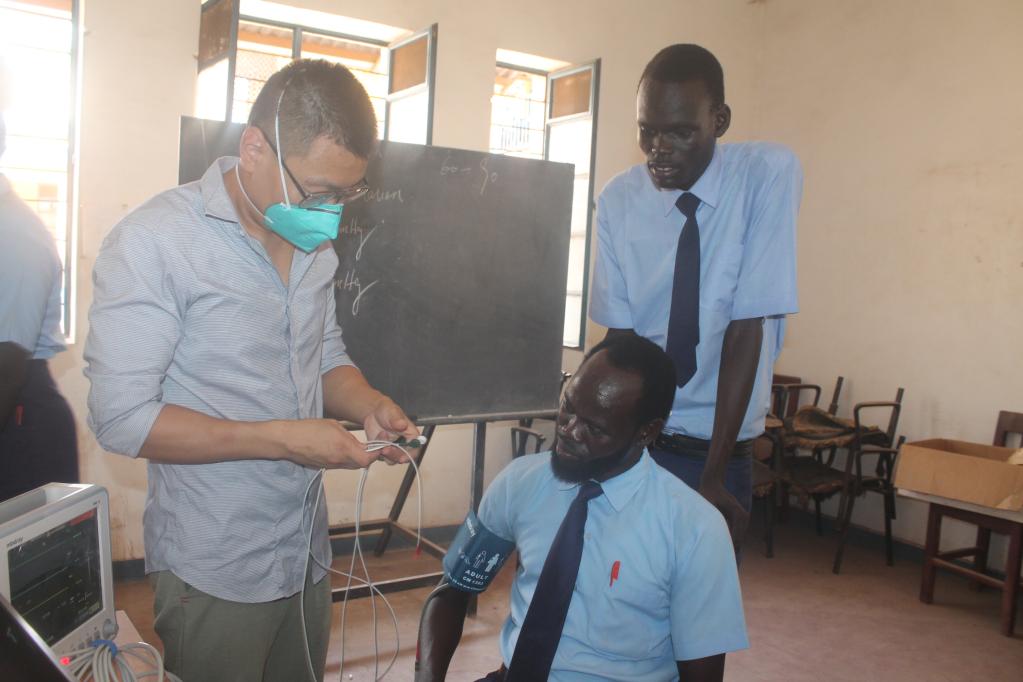
Photo taken on March 9, 2022 shows Chinese anesthesiologist Gao Pengfei (L) teaching students at Juba Institute of Health Sciences on how to perform airway management on patients in Juba, the South Sudanese capital. (Xinhua/Denis Elamu)
"I have learned something new because we have been carrying out practical studies and last semester we were only doing theories. I hope they continue and we learn more new things," George told Xinhua at the end of the lecture. George, a first-year student, said he hopes to utilize the knowledge acquired to further his career once he is done with his studies.
Kiden Rose, a 28-year-old student, said she was relieved to practically experience first-hand knowledge on airway management and operational assessment. "We have learned more about airway management, operative assessment, principles, and spinal anesthesia, actually we are in need of more such lessons," said Kiden.
Airway management is the assessment, planning, and series of medical procedures required to maintain or restore an individual's ventilation, or breathing while operational assessment is an analysis that evaluates an operation's current processes, equipment, software, systems, layout, personnel, inventory mix, handling practices, and more to identify opportunities for improvement.
Andrew Gak, another student, said the knowledge acquired by him and other classmates will be critical in improving theatre management in various hospitals in South Sudan.
"I learned sterilization management so when we go to the hospital at least we will do good work. Now I believe I can practice sterilization, local anesthesia, general anesthesia, and regional anesthesia," said Gak.
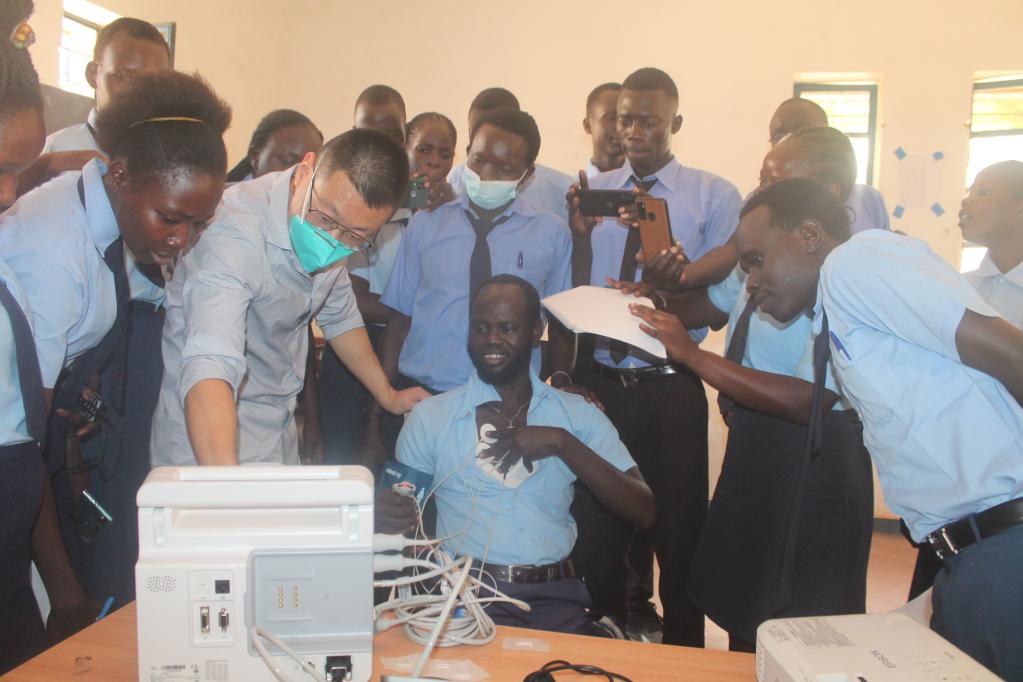
Photo taken on March 9, 2022 shows Chinese anesthesiologist Gao Pengfei (L) teaching students at Juba Institute of Health Sciences on how to perform airway management on patients in Juba, the South Sudanese capital. (Xinhua/Denis Elamu)
Since 2018, several Chinese medical teams have been undertaking lectures at Juba Institute of Health Sciences.
Gao said his lectures are based on the needs of the students and the management of the health institute, adding that the Chinese medical team remains committed to providing quality lectures to students.
Steven Friday Barayona, the acting principal of Juba Institute of Health Sciences, said the institute founded in the 1970s started by training medical assistants before offering diploma courses.
"The important role for students that we are training is that they are responsible for primary health care units in places where there are no doctors, even in state hospitals some of them are running them," said Barayona. "The only challenge is that they were not given a chance of carrying out operations but in surgical management, a good number of them are doing it."
Barayona hailed the Chinese medics for their strong will to support the students.
"They (Chinese) are very interested to come and help the institution in teaching and support in other things that we are lacking, but it is only that we have not given the list of our requirements to them, they already told us that whenever we want something we put it in writing then they will go and look at it," said Barayona. ■
